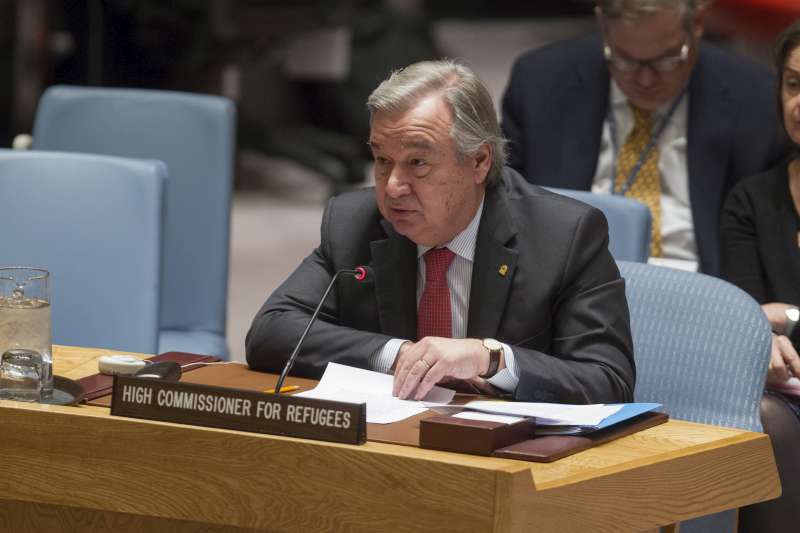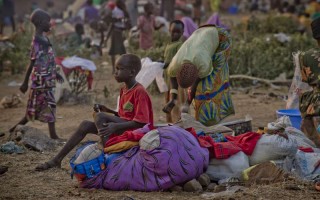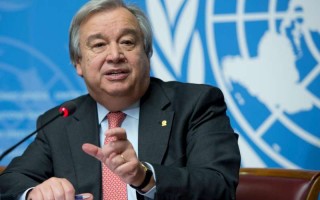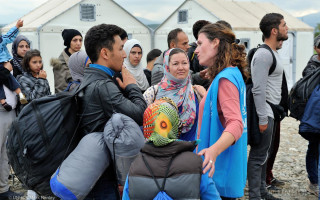
UN High Commissioner for Refugees António Guterres addresses the UN Security Council in New York. © UN Photo / M. Elías
NEW YORK, Dec 21 (UNHCR)—If a swift end to the war in Syria is not found, the country may cease to exist, António Guterres, outgoing head of the UN Refugee Agency has warned.
“If the conflict does not end quickly, this might be the end of Syria as we know it—and the same is true for Iraq,” Guterres said in an address to the UN Security Council in New York on Monday (December 21).
Guterres, who ends 10 years at the helm of UNHCR on December 31, reiterated hopes that Syria peace talks in Vienna would be a “key step for peace to be re-established as the number one priority on the international agenda.”
While there is wide awareness of the historical complexities that created the situation in the Middle East, Guterres said today’s sectarian divide must not be allowed to escalate to the level of the wars of religion that “flattened large parts of Europe in the 16th and 17th century.”
“The lessons of history show that peace cannot wait. The world needs a surge in diplomacy for peace,” he said.
The five-year-old conflict in Syria has displaced nearly 11 million people, including almost 4.4 million refugees in regional neighbours including Jordan, Lebanon and Turkey. So far this year, persecution, conflict and poverty have led an unprecedented one million people to seek safety in Europe, half of them Syrians.
Highlighting a recent UNHCR and World Bank study that found nine out of 10 Syrians in Lebanon and Jordan live below the respective national poverty lines, Guterres called for massive investment in the host countries to prevent refugees from slipping deeper into poverty.
“We need a ‘New Deal’ between the international community—Europe in particular—and Syria’s neighbours. It is clear that without education for their children, access to the labour market and protection against poverty, more and more Syrians will see themselves left with only one option -moving on,” he added.
Guterres stressed that, even with a recent surge in funding triggered by the refugee influx into Europe, the Regional Refugee and Resilience Plan (the 3RP) was only 52 per cent funded—with dire consequences for many families.
“Massive investments are required in support of Lebanon, Jordan and Turkey to prevent refugees from slipping further into destitution and to help governments cope with the increased pressure on health and education, water, electricity and other public infrastructure,” he said.
The UNHCR chief said he hoped an upcoming Syria Donors Conference in London, scheduled for early February 2016, would not only mobilize support for the vast humanitarian needs in the region, but also for longer-term approaches that combine self-reliance for refugees with effective international solidarity and responsibility-sharing with the host countries and communities.





